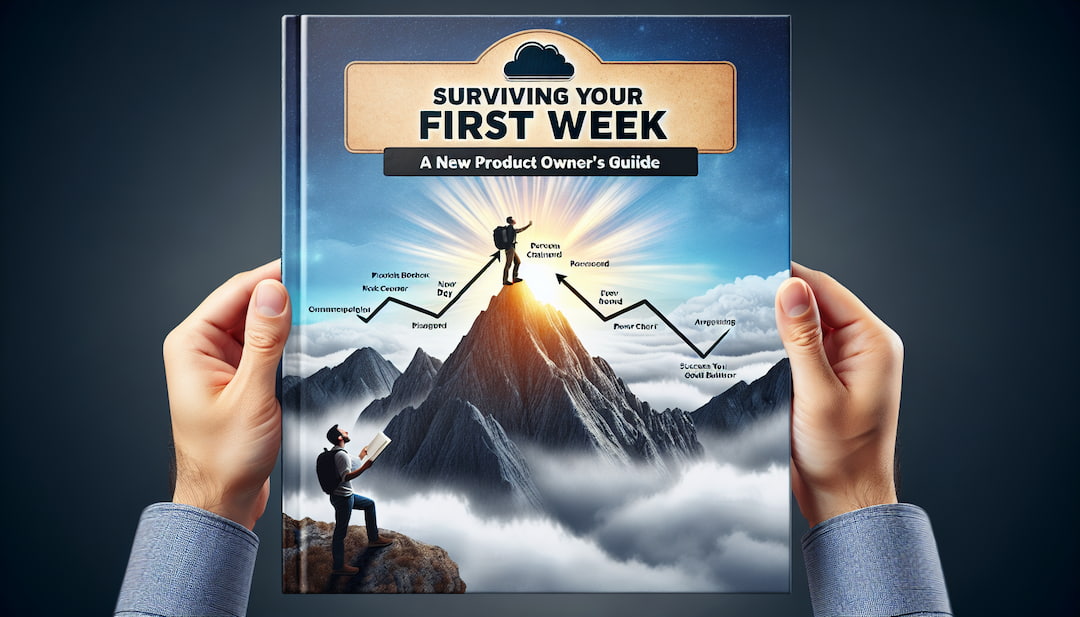Surviving Your First Week: A New Product Owner's Guide

Understanding Your Role and Responsibilities
As a new Product Owner (PO), you must clearly understand your role. Your primary responsibility is to mediate between various stakeholders and the development team. You must ensure that the product vision is understood and implemented effectively. You must prioritize the product backlog, define user stories, and ultimately be accountable for the product's overall success. Your grasp of your role will be the foundation of all your decisions.
Familiarizing Yourself with the Product
A successful PO deeply knows the product. Spend your first week getting acquainted with the product's features, technology, and market. This understanding will serve you well when deciding what features to prioritize or how to articulate the value of your product to stakeholders.
Building Relationships with Stakeholders
Stakeholders can range from internal teams within your company to external customers. Your job as a PO is to balance their varying needs and expectations. Begin by scheduling meetings to introduce yourself, learn about their vision and concerns, and explain how you'll work together. Strong relationships built on communication and trust are crucial for product success.
Getting to Know the Development Team
The development team is your execution arm. You'll work with them daily, so building a good rapport from the start is crucial. Learn each member's strengths and weaknesses, understand their working style, and determine the best way to collaborate. Ensure your role is to support them by providing clear, actionable feedback and being available to answer their questions.
Prioritizing the Backlog
One of the most tangible ways a PO influences a product's trajectory is through backlog management. It's likely that a backlog already exists, but now it's your job to assess and prioritize it based on business value, user needs, and technical feasibility. Learn to say no or defer features that don't align with the product goals.
Learning Agile Principles and Practices
As a PO, you'll likely be working within an Agile framework. Use your first week to brush up on Agile principles and practices such as Scrum or Kanban. Knowledge of these methodologies will enhance your capability to manage the product development process efficiently and adapt to changes quickly.
Settling into the Rhythm of Sprints
If your team follows Scrum, sprints will be a part of your daily life. Familiarize yourself with the sprint cycle, from planning to review and everything in between. Your participation in these ceremonies is critical. They are opportunities to clarify the backlog, answer questions, give feedback, and ensure that the team is working on the most valuable items.
Communicating Effectively
Communication is key in the role of the Product Owner. Whether writing clear user stories, articulating product benefits to stakeholders, or facilitating discussions between team members, your ability to communicate effectively will be tested. Improve your communication skills by being concise, clear, and consistent in your messaging.
Embracing Continuous Learning
As a PO, you're in a volatile field where markets, technology, and customer preferences change rapidly. Adopt a mindset of continuous learning. Subscribe to industry newsletters, join professional networks, and keep up with the latest trends. This proactive approach will help you make more informed decisions and keep your product competitive.
Seeking Feedback and Reflecting on Performance
Seeking feedback on your performance from the development team and stakeholders at the end of your first week as a Product Owner is recommended. Reflect on what went well and what could be improved. Remember that your first week is only the beginning of your journey as a Product Owner, and there is always room for growth and improvement.
To survive your first week as a Product Owner, laying the foundation for success in your new role is essential. By focusing on these critical areas, you can start on the right foot and gradually build your expertise to become a confident and respected Product Owner. in your organization.




